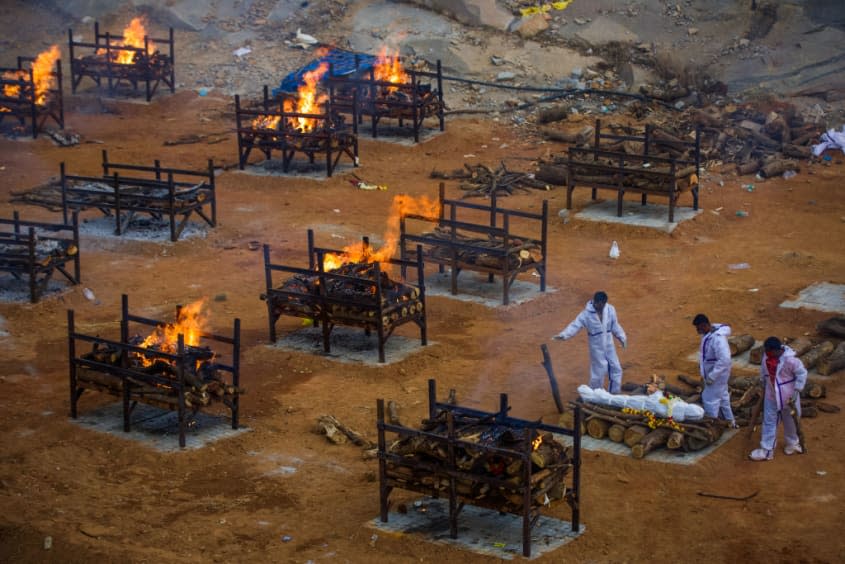What the U.S. can learn from India's brutal Delta surge

The Delta variant of the COVID-19 coronavirus was identified in India in late 2020, and in March, "a catastrophic surge in coronavirus cases ripped through India, killing tens of thousands in a matter of weeks, before plunging just as sharply," The Washington Post reports. The sharp drop, instead of the predicted continued exponential rise, surprised public health officials, but the virus hasn't faded away or even dropped to pre-March numbers. In some parts of India, cases are on the rise again.
"India's experience with the Delta variant, which was responsible for nearly 90 percent of cases in May at the peak of the second wave, offers a preview for other countries, including the United States and China, as they grapple with the stubbornly persistent variant," the Post says.
The first lesson is that if there are pockets of people without immunity — either from vaccines, or previous exposure to the coronavirus — the Delta variant will ruthlessly seek them out. India's vaccination rate is low, but a national seroprevalence survey released in July suggested that about two-thirds of the country has antibodies after the brutal spring surge. Karala state, India's current epicenter, reported 44 percent seropositivity.
"Another lesson in India's experience dealing with its delta wave: Infection among children isn't likely to be severe," the Post reports. India's numbers "are on par with data shared by UNICEF on infection rates among children: Fourteen percent of all coronavirus infections in 103 countries were made up of people younger than 20. The mortality rate for the age group was less than 1 percent."
A third lesson is that — "for reasons clear to no one — Delta appears to peak and fall quickly," says Dr. Bob Wachter at U.C. San Francisco. That happened in India and also Britain. The U.K., like the U.S., has a relatively high immunization rate, and Britain could be approaching "population immunity, with people immune either from vaccinations or natural infection," suggests Paul Hunter, a professor of medicine at the University of East Anglia.
Ashish Jha, dean of the Brown University School of Public Health, said what he's learned from closely observing India's Delta surge is that it's really difficult to predict when and how the next COVID-19 wave will hit. He estimated that the Delta variant is so infectious, another surge is probably coming unless 80 to 90 percent of the population is vaccinated.
You may also like
Why Tom Brady's 'gentle' roast of Trump at Biden's White House was actually 'deeply vicious'
How sociology shows 'policy makers have been looking at vaccine refusal all wrong'

